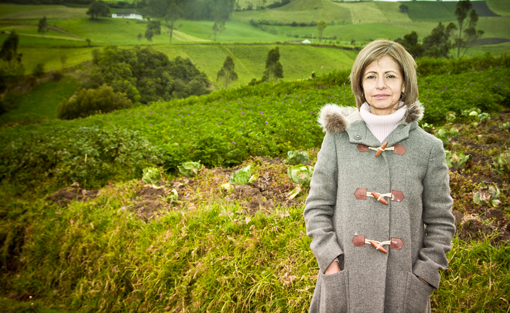This article is part of the Leaders of Social & Political Change series from the Fall 2012 issue of Americas Quarterly. View the full special section.
Historically, Colombia’s rural southwestern region has always been one of the most diverse and economically productive, providing a large share of the country’s food. But it was also the poorest, ignored by the government and wracked by violence.
San Juan de Pasto—the capital of Nariño department—is rich in water and other natural resources. But 60 percent of its rural population is beyond the reach of government services, and an entrepreneurial private sector barely existed.
Upon completing my studies in psychology at Bogotá’s Universidad Javeriana, I returned to Pasto, my hometown. There I spent a short time managing an economic association. After seven months, I left—suddenly aware from my time there that few would benefit from my work. That brought me to Corporación Nariño, Empresa y Futuro (CONTACTAR), a nonprofit organization devoted to supporting micro-entrepreneurs through credit, marketing and technical assistance. Although the organization had the best intentions, the results at the time were meager.
At CONTACTAR, our biggest challenge was to deal with the rural sector; a titanic mission given that we were as poor as our potential clients and lacked access to funding and professional expertise. This is where international donors and organizations like the Ford Foundation came in. It was 1996, and there was a growing awareness of the importance of microfinance.
For economic growth to promote sustainable human development, it must be based on the principles of reducing poverty and advancing inclusion. Microfinance—and CONTACTAR—seeks to treat those it serves as human beings rather than clients, helping them fulfill their responsibilities, defend their dignity and realize their economic potential.
It was from this shared commitment that the Ford Foundation co-financed CONTACTAR’s Proyecto Semilla (Seed Project). The project works with grassroots organizations of fruit, vegetable and coffee producers to help them expand production and, by doing so, increase their income.
Apart from the funding it provided, the Ford Foundation’s philosophy was also crucial to the project’s success. Just as important was the emphasis on collaboration between CONTACTAR, the Ford Foundation and other groups, including other funders. There was a shared notion of integrating different activities, a commitment to inclusion and building alliances with other groups and state institutions, and a mutual understanding of the need to foster local capacities and social networks.
Through the work of CONTACTAR and Semilla and with our international and national allies, we are helping to reinvent the elements of human dignity and the foundations of a socially responsible business. Perhaps most important, we are giving San Juan de Pasto and Nariño the economic tools to forge a path in Colombia’s dynamic and increasingly globalized economy.




